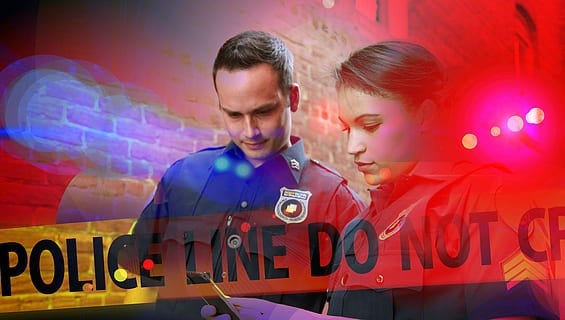“Copaganda”: Entertaining or harmful?

“The move to end [live police procedurals] was well timed.” -Joshua Crerar Koshuba
Reality television depicting law enforcement has been a source of entertainment for years. However, in the wake of the murder of George Floyd and too many other Black people, the Black Lives Matter movement has been leading anti-police, anti-racist protests, and these shows are being seen in a new light.
Popular television series such as Cops and Live PD have been canceled by their respective networks because they capitalize on police brutality, glorify police officer behavior, and exploit civilians who come into contact with law enforcement – earning them the name “copaganda”
Live police procedurals have always been controversial. It is no secret that police officers strive to be perpetuated as arbiters of justice with perfect ideals. Viewers are only given the perspective of the police officers, and suspects do not get a fair opportunity – or a fair edit – to share their side of the story.
Furthermore, reality television as a genre is perpetually focused on “in the moment” action. There is rarely an opportunity to explore the generations of inequality and oppression that have been inflicted upon marginalized groups.
So what are Black people saying about these kinds of TV shows, the spate of recent cancellations, and where to go next? I spoke to Elshadia Ferguson, who is entering the field of social work at the University of Regina, and Joshua Crerar Koshuba, 22, who is gaining work experience before pursuing further education.
“You have to think about the intergenerational trauma,” Ferguson said. “Even if they haven’t experienced it themselves, their grandparents have told them stories, or their parents have told them stories, and it’s going to stick with them because they know they are a minority group.”
And these iniquities get perpetuated when police officers are glorified on the small screen – reality television is about entertainment, not about being an informative or reliable source.
“Action is always something that’s attractive to people,” explained Koshuba. “We love to be in high-intensity moments.”
To gather and sustain enough of a viewer base to continue airing the series, producers have to provide a steady stream of eye-catching, adrenaline-raising events that are not necessarily a realistic depiction of a standard police officer’s day.
The disclaimer on Cops informs viewers that “Cops is filmed on location, with the men and women of law enforcement. All suspects are innocent until proven guilty in a court of law.”
But this disclaimer does not go far enough to prevent people who have been arrested from being totally vilified on TV, and does not acknowledge that anyone may act differently on television than they do when the cameras are off.
“It’s frustrating to watch Black people be portrayed as bad,” said Ferguson, reflecting on her experience of watching these shows. “It is disgusting how we, as a society, can capitalize on racist attitudes for money and entertainment.”
“History is never written from the perspective of the oppressed – only the oppressor,” agreed Koshuba.
Although live police procedurals have been a source of controversy and criticism for years – a 2004 study found Black and Latino men were typically depicted as violent criminals, white people were shown disproportionately infrequently, and the officers on the show were almost always white – shows in the genre have consistently received awards and popular acclaim.
In 1993 Cops won the American Television Award and has received four Emmy nominations. Moreover, the Copstheme song “Bad Boys” by Inner Circle is still popular today.
When we know that shows like Cops negatively characterize BIPOC, then why do viewers continue to watch them for entertainment and pleasure?
“For me, personally, why I don’t resonate well with cop shows is because they have a very targeted audience,” said Koshuba.
Looking at the Cops and the Live PD websites, their list of “Top Officers,” shows a list of mostly male, white police officers. There is a bias in television towards showing what viewers want and are comfortable with seeing, and playing into tropes that reinforce white supremacy is often seen as less controversial or “risky” than deliberately working towards racial equality.
“It’s blatantly clear that these shows were created for the cis white male,” said Koshuba.
Now that a few well-known police reality shows have been permanently cancelled, and more may follow as the Black Lives Matter movement continues, the question remains – should these shows ever have aired in the first place?
“I don’t think cops need cameras to prove that they are good cops,” said Ferguson.
“I don’t think the problem is the show itself,” added Koshuba. “I think the system is way overdue for an upgrade.”
The cancellation of Cops and Live PD demonstrates a cultural triumph for the Black Lives Matter movement. As a society, eliminating these toxic live police procedural television shows is only one small part of the continued struggle for racial equality, but it is a step in the right direction.









